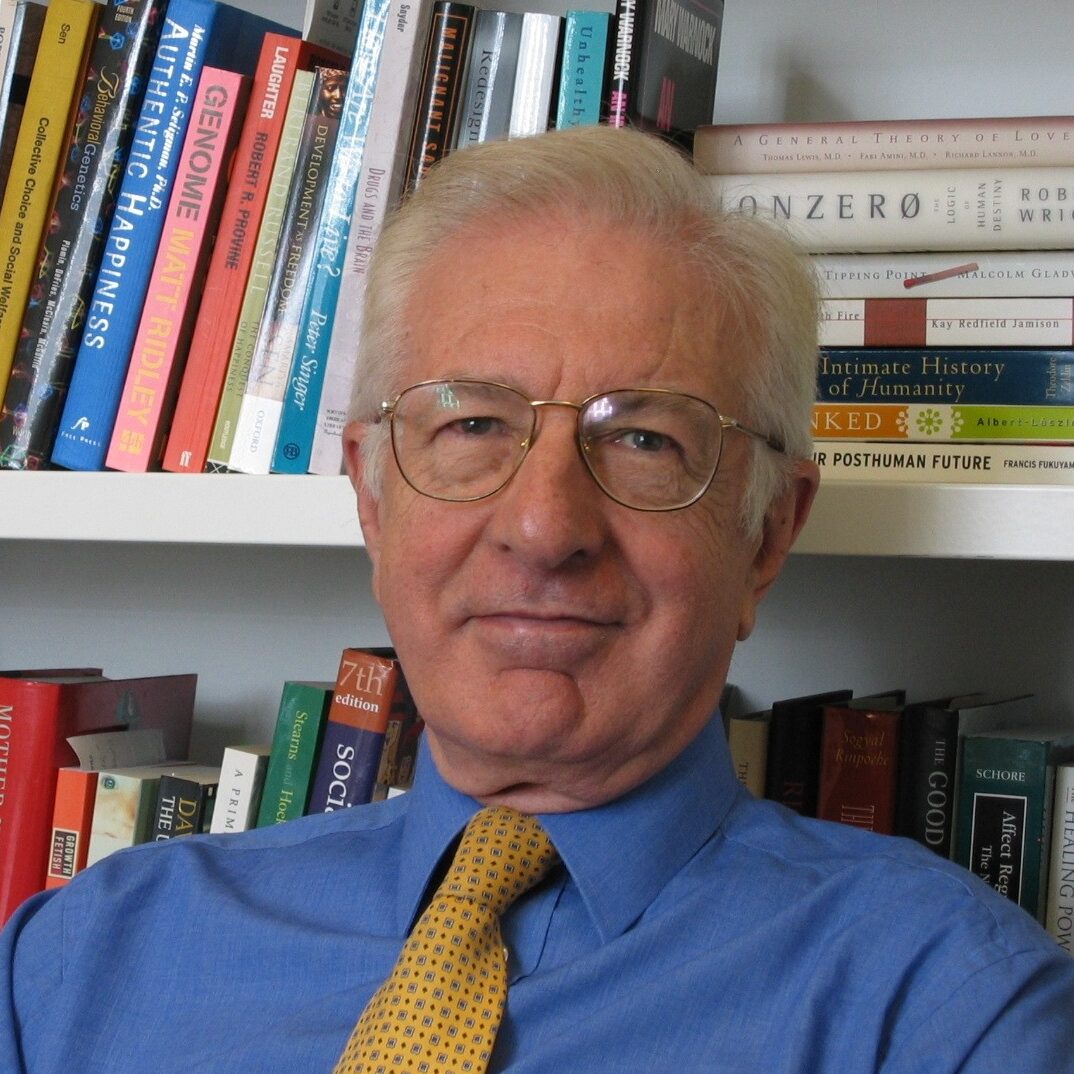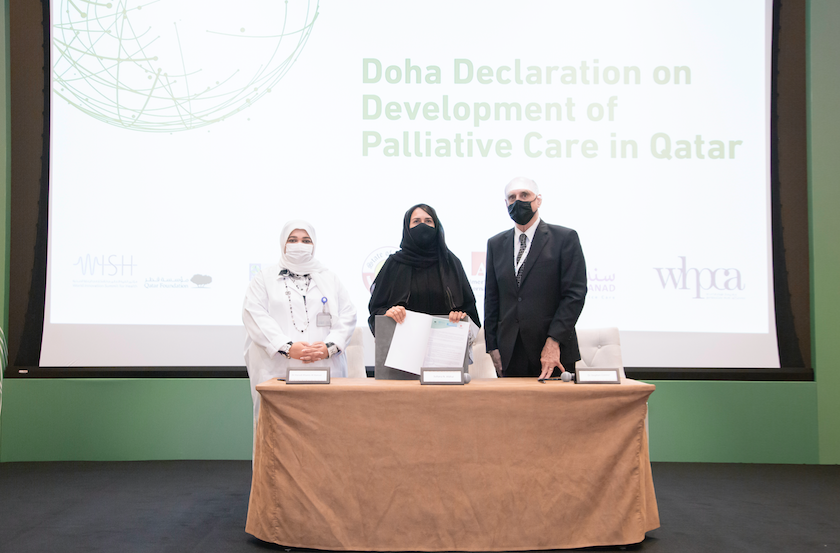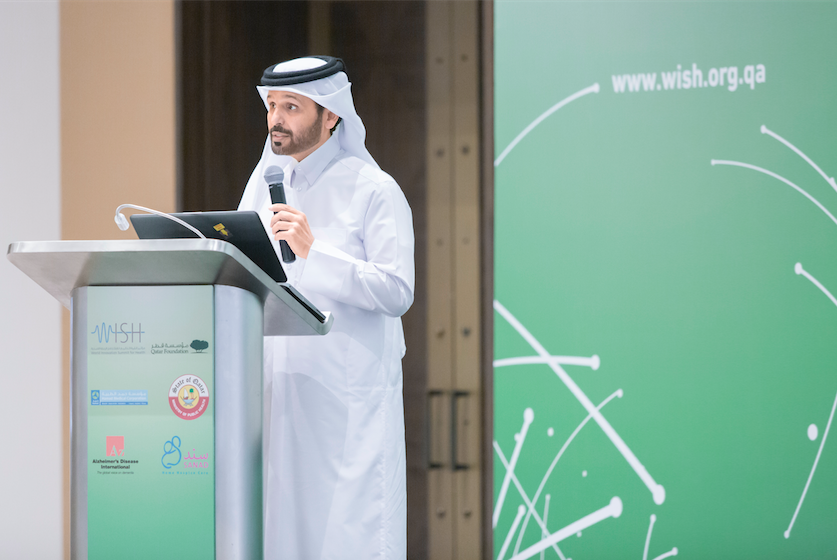INTERNATIONAL INQUIRY CALLS FOR GLOBAL ACTION TO IMPROVE THE MENTAL WELLBEING OF CHILDREN

Charities called on to develop free education and treatment programs using smartphone technology
Doha, Qatar (17 February 2015): The wellbeing of children must become a major priority for every nation and work must start within communities, healthcare systems and schools to address the burden of poor mental health in childhood. Childhood mental illness should be taken as seriously as physical illness and charities must harness smartphone technology to make education and support programs accessible to all.
These are just some of the recommendations of an inquiry led by Professor Richard Layard, expert on happiness at the London School of Economics, who today presented a report ‘Healthy young minds: transforming the mental health of children’, at the second World Innovation Summit for Health (WISH), a global initiative of Qatar Foundation for Education, Science and Community Development, in a forum attended by health policymakers and specialists from around the world, in Doha, Qatar.
One in ten young people under 18 has a diagnosable mental illness such as depression, anxiety and conduct disorder – amounting to 220 million worldwide. Of these, more than half will go on to develop mental illness in adult life and have a three times higher risk of being involved in crime, drug abuse or suicide. Less than a quarter of mentally ill children are getting specialist help for their problem and this lack of intervention costs societies dearly.
The report argues that the investment required to implement the recommendations could revolutionize the lives of children, whilst also producing major economic benefits to society. It focuses on ten specific evidence-based action points that can be carried out in every country and would bring great benefit:
- Community action: Every local community should have a local child wellbeing strategy.
- Parity of esteem: Evidence-based healthcare for children and their parents should be equally available whether their disorder is mental or physical.
- Universality: All health professionals should be trained to identify mental health problems in children, as well as perinatal depression in mothers.
- Professionals: Every country should train more professionals in evidence-based treatments, especially psychological therapy.
- Schools for wellbeing: The wellbeing of pupils should be an explicit objective of every school.
- Measurement: Schools should measure pupil wellbeing regularly.
- A life-skills curriculum. Schools should use evidence-based methods to provide explicit teaching in life skills for at least an hour a week throughout school life and more in the early years.
- Teacher training: All teachers should be trained in ways to notice and promote child wellbeing and mental health, and to maintain a civilized learning environment.
- Use of mobiles: There should be a major international program to develop free smartphone-based approaches to all the recommendations. A major international charity should be asked to support this.
- The sustainable development goals: The sustainable development goals should include explicit reference to physical and mental health.
Chairing the Mental Health and Wellbeing in Children Forum, Professor Layard, Wellbeing Program Director at the Centre for Economic Performance at the London School of Economics, said: “Our children are our future and we ignore their mental health at our peril. Mental health problems place massive costs on the rest of a country’s economy – educational failure, adolescent crime, teenage pregnancy and ultimately dependence on the state. Early intervention is crucial if we are to stem the rising tide of childhood mental illness and reduce the wider negative impacts on society. Yes, there are costs involved. But the savings will be great and will often exceed the cost. We simply cannot afford not to do it.
“Our single most important recommendation is that one or more major charities establish a substantial fund to design online programs to support staff training, treatment and the delivery of life-skills curriculums in schools, to be made available free worldwide. We recognize the financial pressure on health systems – but we firmly believe that modern smart phones and computer technology have made it possible to deliver effective help at low cost. This is an opportunity not to be missed.”
Professor the Lord Darzi of Denham, Director of the Institute of Global Health Innovation at Imperial College London, and Executive Chair of WISH, said: “It is vital that the global issue of children’s poor mental health is tackled and I’m delighted that Professor Layard and the panel have contributed so robustly to this debate and provided the evidence-based recommendations that were needed in order to help move this issue forward. My hope now is that philanthropists and policymakers will now rise to the challenge, prioritizing children’s mental health and implementing major changes worldwide. Doing so could revolutionize the lives of our children, and contribute much to building a happier world.”
Mental Health and Wellbeing in Children is one of eight reports being presented at the 2015 WISH Summit taking place in Qatar, where leading international health experts are joining an influential community of heads of state, government ministers, academics, clinicians, policy makers and business leaders to discuss innovative solutions to some of the most pressing global health challenges.
As well as Mental Health and Wellbeing in Children, WISH will publish reports on Communicating Complex Health Messages, Diabetes, Delivering Affordable Cancer Care, Dementia, Patient Safety, Universal Health Coverage, and Maternal and Newborn Health.
WISH is spearheaded by Qatar Foundation to inspire and diffuse healthcare innovation and best practice. It remains closely aligned to the vision and mission of QF to unlock human potential and reinforces Qatar’s pioneering role as an emerging center for healthcare innovation.
To download the reports and watch the research discussions that taking place at WISH, please visit wish.org.qa.
ENDS
Notes to Editors:
For more information please contact:
Noha El Afify
WISH Communications Manager
nelafify@wish.org.qa
+974 7768 6624
Healthy young minds: transforming the mental health of children
THE REPORT’S FOCUS
Nearly all Organisation for Economic Co-operation and Development (OECD) countries now measure adult life satisfaction as a routine statistic and, increasingly, people feel that the success of a society cannot be judged mainly by its level of wealth but by how satisfied people are with their lives. In this context – as well as from both a humanitarian and economic point of view – it is vital that the global issue of children’s poor mental health is tackled now.
While acknowledging the scale of the problem, the report stresses that there are existing treatments available for children in distress, which – research has demonstrated – can deliver real benefits. There are also numerous other preventative and interventional approaches that can be harnessed – in families, schools and wider communities.
REPORT INSIGHTS
The report focuses on ten specific evidence-based action points that can be done in every country and would bring great benefit. These action points, documented in detail in the report, stem from three key principles:
- Early intervention to support families
- Parity of treatment between mental and physical health within the healthcare system
- Children’s wellbeing being included as a major objective for schools
The report argues that the investment required to implement the recommendations could revolutionize the lives of our children, whilst also producing major economic benefits to society. It also challenges policymakers and political establishments to prioritize this issue and implement major changes worldwide.
THE FORUM CHAIR

Richard Layard, Prof Lord Layard FBA
Wellbeing Program Director at the Centre for Economic Performance, LSE
Professor Lord Layard is Emeritus Professor of Economics at the London School of Economics, where he was until 2003 the founder-director of the Centre for Economic Performance. He now heads up the Center’s Program on Wellbeing. Since 2000 he has been a member of the House of Lords and is a keen advocate of making subjective wellbeing of the people the central objective of governments. He is co-founder of Action for Happiness, which has more than 30,000 members in more than 140 countries.
His influential book ‘Happiness – Lessons from a New Science’ was published in 2005 and has sold 150,000 copies in 20 languages. A second edition was published in 2011. He also advises the British Government on mental health policy and is an architect of the new revolutionary policy of Improving Access to Psychological Therapies (IAPT). He has been adviser to the UK Office of National Statistics on the measurement of national wellbeing and Vice-Chair of the World Economic Forum Global Agenda Council on Health and Wellbeing.
About the World Innovation Summit for Health:
The World Innovation Summit for Health (WISH) is a global healthcare community dedicated to capturing and disseminating the best evidence-based ideas and practices. WISH is an initiative of Qatar Foundation for Education, Science and Community Development (QF) and is under the patronage of Her Highness Sheikha Moza bint Nasser, its Chairperson.
The inaugural WISH Summit took place in Doha in 2013 and convened more than 1,000 global healthcare leaders. Through international summits and a range of ongoing initiatives, WISH is creating a global community of leading innovators in healthcare policy, research and industry.
Together, they are harnessing the power of innovation to overcome the world’s most urgent healthcare challenges and inspire other stakeholders to action.
Qatar Foundation – Unlocking Human Potential
Qatar Foundation for Education, Science and Community Development is a private, non-profit organisation that is supporting Qatar on its journey from a carbon economy to knowledge economy by unlocking human potential for the benefit of not only Qatar, but the world. Founded in 1995 by His Highness Sheikh Hamad Bin Khalifa Al Thani, The Father Emir, QF is chaired by Her Highness Sheikha Moza bint Nasser.
QF carries out its mission through three strategic pillars: education, science and research, and community development. QF’s education pillar brings world-class universities to Qatar to help create an education sector in which young people can develop the attitudes and skills required for a knowledge economy. Meanwhile, its science and research pillar builds Qatar’s innovation and technology capacity by developing and commercialising solutions through key sciences. Finally, its community development pillar helps foster a progressive society while also enhancing cultural life, protecting Qatar’s heritage and addressing immediate social needs in the community.
For a complete list of QF’s initiatives and projects, visit http://www.qf.org.qa
For more information about Qatar Foundation please contact our press office at: pressoffice@qf.org.qa



